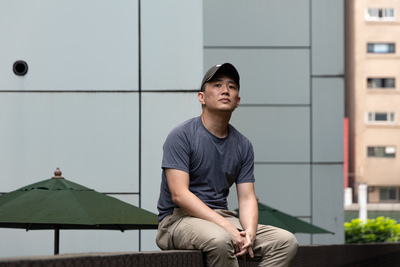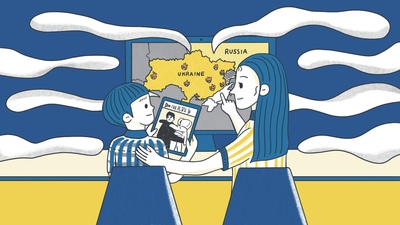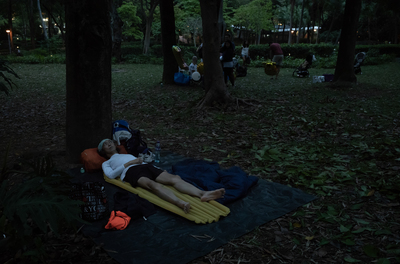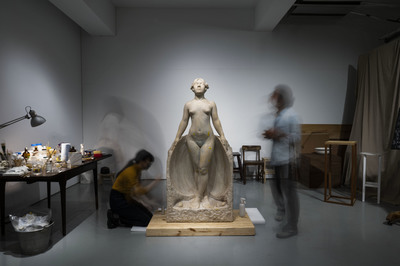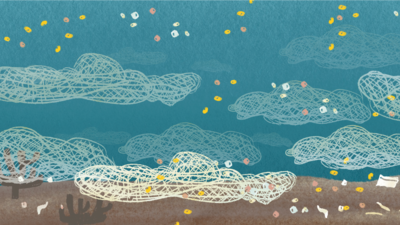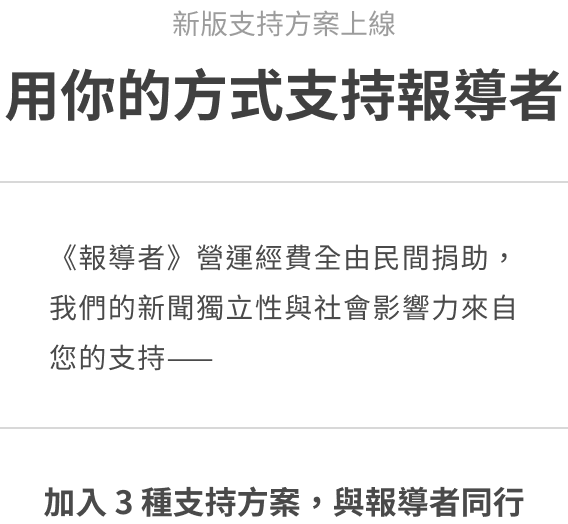OPINION
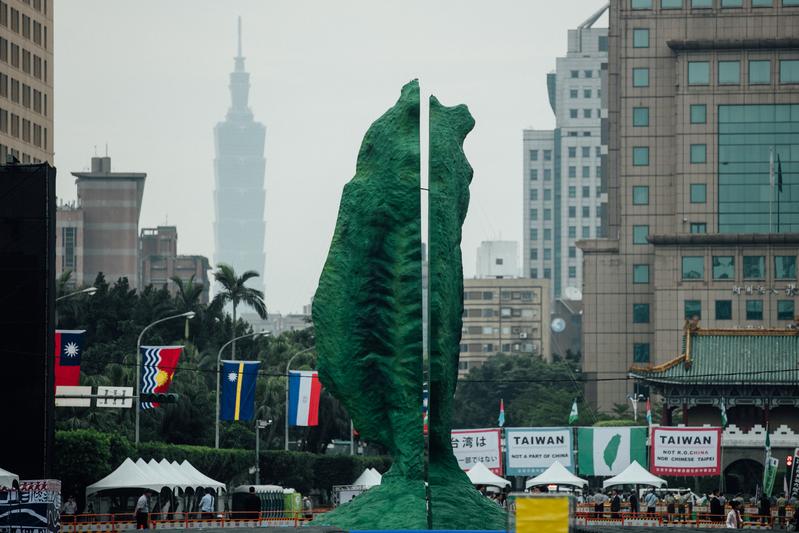
How is Taiwan seen under the gaze of others? What might hinder people from understanding Taiwan as it is through a more realistic approach? How can Taiwanese establish and present its own subjectivity? Lin Wei-Yun ‘s (林蔚昀) insightful critique of a Polish edited volume on Taiwan might provide some meaningful clues.
Perhaps due to Taiwan’s marginal status in the international community, Taiwanese people are often flattered when foreigners show their recognition and liking of Taiwan; We are overjoyed and express our gratitude enthusiastically on social media whenever we see foreigners supporting Taiwan or speaking out for Taiwan. However, do foreigners really understand Taiwan and support Taiwan that well? Is there a divide between the Taiwan they know and support and the Taiwan we perceive? What are their reasons for supporting Taiwan? This is a very interesting and noteworthy question.
Having lived in Poland for eleven years, I have always been interested in how Poles see Taiwan. Most Taiwanese would suppose that since Poland is anti-communist and has the similar history of being oppressed like Taiwan, Poles might empathize and sympathize with Taiwan’s situation, support Taiwan, and oppose China. But according to my personal observations, the situation is far more complicated than that. Some Poles who have been to Taiwan, currently live in Taiwan, and have friends in Taiwan are indeed emotionally closer to Taiwan, understand Taiwan, and support Taiwan. But does the mere feeling of emotional connection and sympathy also mean direct support? This remains to be seen. Most Poles, nonetheless, have no idea where Taiwan is or know little about the country. How can we expect them to be empathetic? Some Poles realize the difference between China and Taiwan and understand the historical background of Taiwan and China, but they think of Taiwan as “a good, free, democratic China with traditional Chinese culture” and of the Taiwanese as “Chinese living in Taiwan.” In fact, the sinologists and government officials in Poland who think this way are by no means minority.
During the communist era, Poland and Taiwan were politically opposed to each other, and there were no official exchanges between the two. It was only after the 1990s that Polish students were able to study in Taiwan – many did not come to Taiwan for the sake of Taiwan but instead, saw Taiwan as another window to learning Mandarin. In fact, most Polish scholars – including sinologists, international relations scholars, and political scientists – define Taiwan roughly with the following stereotypes: the Republic of China, Chinese culture, and Confucianism. Even for scholars who consider themselves pro-Taiwan and like Taiwan, it is difficult to break away from these stereotypes. Only a few of them can truly treat Taiwan as Taiwan and recognize its uniqueness and subjectivity.
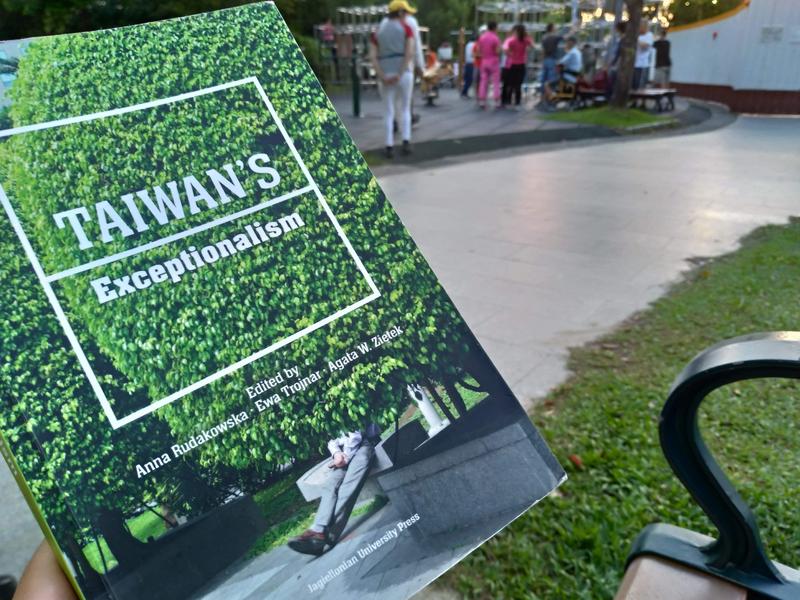
In March 2020, I found Taiwan's Exceptionalism, a collection of English essays on Taiwan written by Polish scholars and published in 2019. Seeing that the book aligned with my interests as it concerned both Poland and Taiwan, I asked a friend to purchase it from Poland and send it to Taiwan (However, this book has also been made available as an e-book on Amazon and Columbia University's website since October 2020).
I thought this book would tell me how Polish scholars view Taiwan’s current situation and contain many insightful analyses, but after reading it, I realized that that was not the case. Many of the contributing scholars in this collection do not understand Taiwan as it is today and still see Taiwan through the viewing frame of China.
To Trojnar, the idea of groveling and begging for compromise becomes a peaceful dialogue and a struggle for international space – a somewhat unthinkable idea for many Taiwanese today, but it is exactly the approach of the Kuomintang towards the relationship between Taiwan and China, and the tone of many of the essays in Taiwan’s Exceptionalism. In this context, sovereignty becomes a taboo subject that must be carefully avoided.
However, the Sunflower Student Movement has changed the way a whole generation of Taiwanese view Taiwan's identity and political participation. For example, many people who were previously apathetic about politics have become involved in social movements thanks to this incident, and many Taiwanese have become interested in Taiwan’s own history, including political history. None of these were seen by Kozłowski; Or, they were simply not his concern.
One can’t help but wonder why the Taiwanese government would support such scholars or such an institution to do research and publish such a collection of essays – the publication of Taiwan’s Exceptionalism is sponsored by the Taiwan Studies Centre of the Institute of the Middle and Far East, a centre established by the Ministry of Education of Taiwan at Jagiellonian University – and allow this book, which may misrepresent Taiwan and undermine its international standing, to circulate worldwide?
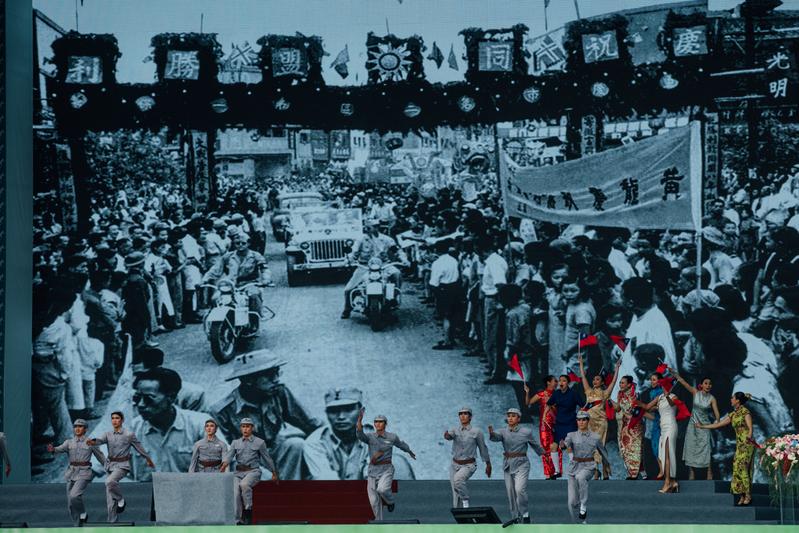
Do the arguments in Taiwan’s Exceptionalism reflect the mainstream opinion of Polish academia? What do other Polish scholars think about Taiwan? Out of curiosity, I did some research and found out that many older and mid-career Polish scholars have either the same biased conception of Taiwan as Taiwan’s Exceptionalism or an overwhelmingly pro-China perspective.
Bogdan Góralczyk, a former diplomat and associate professor at the Centre for Europe at the University of Warsaw, said in a 2019 interview that “for the Beijing government, there is no more ‘sacred’ task than unifying all of China. After Hong Kong (1997) and Macau (1999), it is now Taiwan’s turn. This is to achieve what the Chinese call ‘the rejuvenation of the Chinese nation.’ That is why China has been so restrained in dealing with Hong Kong. After all, if China uses its military forces to suppress the resistance of the former colony, how will it unify peacefully with Taiwan afterwards?” In another interview in 2017, he put it more bluntly: “First of all, building a well-off society and realizing the rejuvenation of the Chinese nation require the peaceful reunification of Taiwan. Without unification, there is no rejuvenation, first with the return of Hong Kong, then Macau and lastly Taiwan.”
Some Polish scholars tend to see Taiwan as a good, traditional, and democratic China. For these scholars, Taiwan is like a repository of the essence of Chinese culture, but they fail to have a deeper understanding of Taiwan's own culture. Ewa Zajdler, chair of the Department of Sinology at the Institute of Oriental Studies of Jagiellonian University, loves Taiwan, but what she loves is Taiwan's Chinese culture. When I tried to tell her that there is not only Chinese culture in Taiwan, but also Japanese culture, American culture, aboriginal culture, and Taiwanese new immigrants' culture , she replied, “Yes, but Chinese culture is still the mainstream.”
When Taiwan is generally considered by most Polish scholars as another China, a good China, and a democratic China, and when Taiwanese are seen as Chinese living in Taiwan, Taiwan’s subjectivity and uniqueness will be ignored and erased. It seems that, in the minds of these pro-China/Chinese scholars, it does not matter who the Taiwanese think they are or what kind of future they want, because Taiwan exists only to maintain peace and stability in East Asia and the South China Sea, to democratize China, to revive the Chinese nation, and to preserve the fine, traditional Chinese culture. Even Taiwanese literature is seen as a contrast group.
Katarzyna Sarek, the translator of the Polish versions of The Man with the Compound Eyes and The Sound of Colors and an associate professor in the Department of Sinology at the Institute of Oriental Studies of Jagiellonian University, said in a Podcast regarding the translation of Chinese literature in 2020: “Taiwanese literature embodies a possibility that allows us to see what Chinese literature can be, that Chinese writers can write whatever they want.” She also pointed out that compared to Chinese literature, Taiwanese literature is more “rebellious” (niegrzeczna) and touches on a broader array of issues (such as issue of homosexuality), and she hopes that more Taiwanese literature will be published in Poland so that Polish readers can see that “not only trauma and the Cultural Revolution, but also ordinary life is worth writing and reading about.” Hearing these words from her, I can’t help but ask: Why should Taiwanese literature take on the mission of opening up “another possibility for Chinese literature?” Besides, Chinese literature and Taiwanese literature are not the same in the first place!
It is not that Taiwanese people have never experienced trauma. Taiwan has been ruled by the Netherlands, Japan, and China; Taiwanese have experienced the 228 Incident, the White Terror, and is still suppressed by China and not recognized internationally. If the people of Taiwan are able to lead – temporarily – an ordinary, free and democratic life, they have earned it through blood and sweat, and they may lose it, have it destroyed, or taken away from them inadvertently. What the Taiwanese want is nothing more than to live an average, ordinary, and normal life; to be treated as a normal country by the international community; and to have the rights that a normal country possesses. However, Taiwan has been specialized and exceptionalized and told: you can’t, you are not qualified, you are not legal, this is not yours, you can’t decide your own fate.
Among the many unbelievable statements made by Polish scholars, the most perplexing is the definition of Taiwan in the encyclopedia of the Polish Scientific Publishers (Państwowe Wydawnictwo Naukowe, PWN): “An East Asian country whose territory includes the island of Taiwan and 21 outlying islands and the Penghu Islands, located in the Taiwan Strait that separates Taiwan from China. Taiwan is formally a province of China, but in fact independent of the government of the People's Republic of China.”
The case of Poland may just be one example, and perhaps there are other countries whose academics view Taiwan in the same outdated and biased way. Taiwanese must pay attention to the changes in the academic, political, and media worlds abroad. When Taiwanese see scholars engaged in Taiwan studies and publishers publishing works on Taiwanese literature, we should not just be happy that “Taiwan has been seen,” but should closely examine and study what they publish, the quality of their translations, how they argue, whether their arguments are beneficial or harmful to Taiwan, and what kind of Taiwan they have in mind.
On the other hand, we must also actively promote Taiwan and tell foreigners what Taiwan really looks like and how Taiwanese understand themselves and their land. It is not enough to use the beauty of Taiwan to attract foreigners’ attention and make them like Taiwan. Many foreigners who have visited or lived in Taiwan (including Poles) like Taiwan, like its history and culture, its natural environment, its democracy and human rights; They feel that living in Taiwan is good, convenient, efficient, safe (though they complain about the traffic), and that Taiwanese people are friendly and approachable. However, can this liking be translated into real political support? When Taiwan is threatened by military and political means, can this liking be transformed into striving for and defending Taiwan, instead of staying in Taiwan when Taiwan is peaceful and safe but cutting and running when the island is in dire situation (being attacked and annexed by the PRC)?
This is a cruel question, but one that Taiwanese should ask themselves and use to examine every foreigner who says that he or she “likes Taiwan.” This is not to say that when you hear that a foreigner likes Taiwan, you have to ask: “What would you do for Taiwan?” Rather, we don’t have to express our enthusiasm one-sidedly upon hearing “I like Taiwan,” but should wait and observe to see if the other person is worthy of our friendship and dedication, and to think about what we can do in exchange for their support.
We need to find one or more things that really represent Taiwan in a powerful way and that will impress people at first glance. “Taiwan can help” managed to attract attention during the pandemic, but do we want to keep saying “Taiwan can help” after the pandemic? After the pandemic, how will Taiwan participate in the international community? If Taiwan can still help, what exactly will it help? Who will we help? And what do we want others to help us with? All these should be carefully and pragmatically thought about.
Meanwhile, we must also think thoroughly about how to effectively bring Taiwanese culture onto the international stage. To promote Polish cinema, the National Audiovisual Institute (Narodowy Instytut Audiowizualny) set up a website, NINATEKA, where 7,000 audiovisual works (documentaries, animations, dramas, theatre records... many of them classics) are available for free viewing. Could we do the same in Taiwan (but with subtitles in foreign languages, as the biggest drawback of NINATEKA is that there are no subtitles for foreign audience)? We could even create cultural databases in foreign languages (English to begin with, but more foreign languages would be better if we have the capacity) and list all the links to cultural websites worth visiting (of course, these websites should also be available in foreign languages), so that it would be easier for foreigners to look for information.
The establishment of online cultural databases in foreign languages will not only make it easier for foreigners interested in Taiwan to get in touch with, understand and get closer to Taiwanese culture, but also provide Taiwanese abroad (students overseas, Taiwanese who marry foreigners, Mandarin teachers) who want to promote Taiwanese culture with more resources. After all, it can be very costly to buy books and DVDs and lend them to foreign friends. In fact, we already have many online cultural databases, such as Bank of Culture, Old House Face, StoryStudio, and Creative Comic Collection... all there is left to do is to make them available in foreign languages.
If we can set up cultural databases in foreign languages, we can also establish online museums, online news/commentary/in-depth reporting databases (and these have to be large and updated promptly), Taiwanese history databases, a TV station (that can be watched outside of Taiwan!), all available in foreign languages. Besides, we can also carry out cultural diplomacy workshops for Taiwanese young adults. We must speak for ourselves as much as we can, not just wait passively and thank people for speaking up for us, because we have no idea why they are speaking up and whether they are really speaking up for you or taking your voice away.
We must speak our names out loud, not wait for others to name us. This is the only way we can truly exist and gain recognition and respect
To read the Chinese version of this article, please click:〈林蔚昀/我們必須說出自己的名字──從波蘭學者《台灣例外論》的矛盾談起〉
用行動支持報導者
獨立的精神,是自由思想的條件。獨立的媒體,才能守護公共領域,讓自由的討論和真相浮現。
在艱困的媒體環境,《報導者》堅持以非營利組織的模式投入公共領域的調查與深度報導。我們透過讀者的贊助支持來營運,不仰賴商業廣告置入,在獨立自主的前提下,穿梭在各項重要公共議題中。
你的支持能幫助《報導者》持續追蹤國內外新聞事件的真相,邀請你加入 3 種支持方案,和我們一起推動這場媒體小革命。


